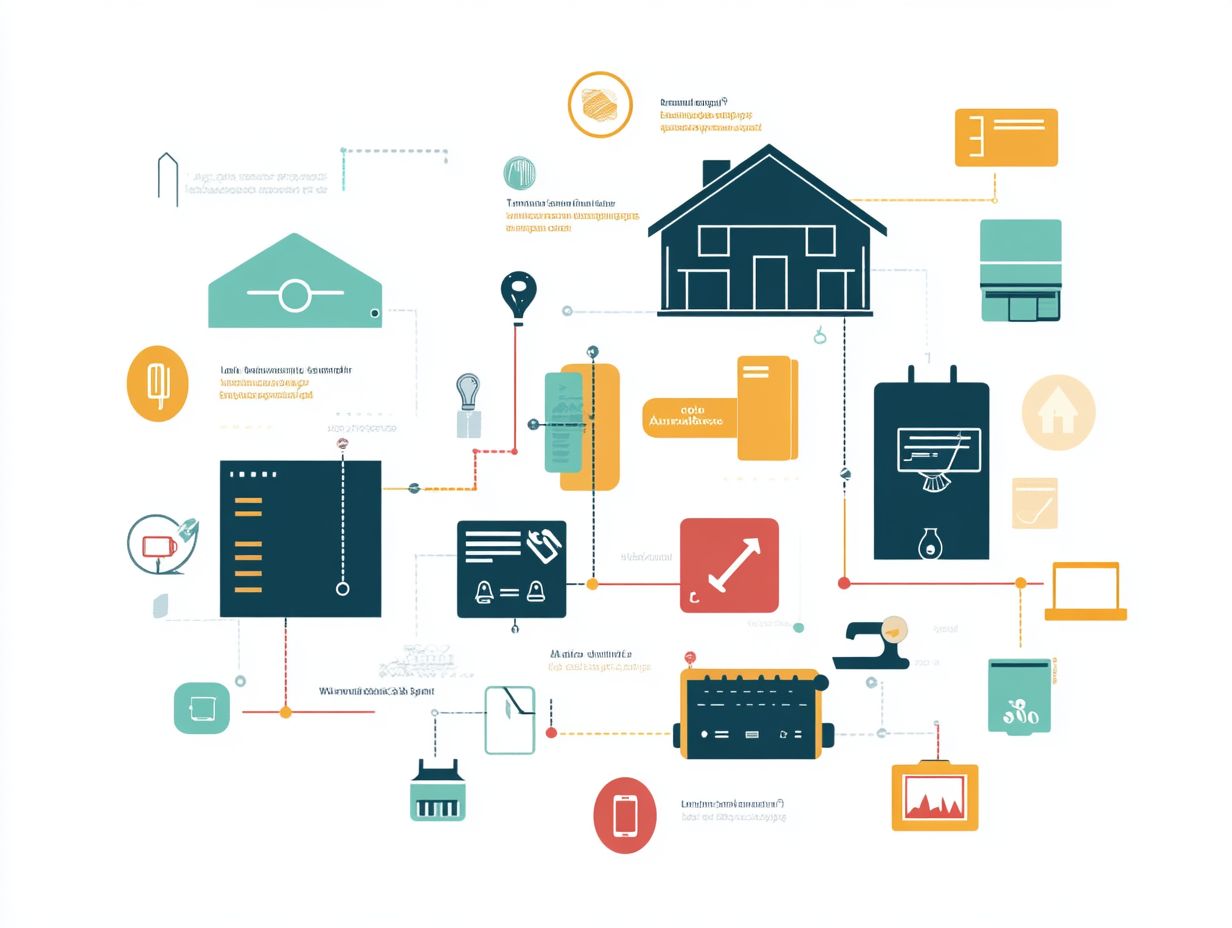The Different Types of Warranties Explained
Warranties can serve as a crucial safety net, providing peace of mind and a buffer against unforeseen expenses. Yet, understanding what a warranty entails and how it functions can often be daunting.
This article simplifies the essentials of warranties, exploring their significance and the various types such as express, implied, and extended along with what they typically cover and how to navigate the claims process.
You’ll also find practical tips for selecting the right warranty tailored to your needs. Whether you re investing in a new appliance or a vehicle, understanding warranties can ultimately save you both time and money.
Contents
Key Takeaways:

- Warranties are legally binding agreements that protect consumers from defects and malfunctions in products and services.
- Express warranties are clearly stated by the seller, while implied warranties arise automatically by law. Extended warranties offer additional coverage for a fee.
- Warranties typically cover repairs, replacements, and refunds for specific defects or malfunctions. They may have exclusions and requirements for making a claim. Consider factors such as coverage, cost, and reputation when choosing a warranty.
Understanding Warranties
Understanding warranties is essential for both buyers and sellers in commercial transactions. Warranties act as legal promises about the quality and performance of goods, providing a framework that shapes your dealings.
According to the Indian Contract Act and the Sale of Goods Act, these warranties can be explicit or implicit, affecting your rights and obligations within a contract. Understanding this concept helps improve your contracts and builds trust.
What is a Warranty?
A warranty is essentially a promise from the seller about the condition and quality of the goods you purchase. It offers you peace of mind regarding their performance and durability.
This commitment ensures that the product will function as expected and establishes a legal basis for recourse if the item fails to meet the promised standards. On the other hand, conditions are fundamental terms of the contract that, if breached, could nullify the agreement entirely. A breach occurs when either party neglects their obligations, creating specific rights and remedies for the affected party.
As a buyer, understanding your rights under warranty agreements gives you the power to seek repairs, replacements, or even refunds. Meanwhile, sellers must remain acutely aware of the consequences that come with failing to uphold these guarantees.
Why are Warranties Important?
Warranties play a crucial role in building trust between consumers and sellers. They offer a legal framework that safeguards your interests while ensuring sellers meet their obligations.
These assurances boost the credibility of businesses and clarify your expectations regarding product reliability and performance. Should a breach occur, consumer protection laws step in, giving you the power to enforce your rights through legal channels. This system is vital for maintaining the integrity of transactions and fostering accountability among vendors.
When businesses honor their warranty commitments, they cultivate lasting relationships with customers, leading to satisfaction and loyalty two invaluable assets in today s competitive markets.
Types of Warranties
In commercial transactions, you ll encounter various types of warranties. Each is designed to offer distinct levels of coverage and protection, including:
- Express warranties, which are explicitly stated;
- Implied warranties, which arise from the nature of the transaction;
- Extended warranties, providing additional assurance beyond the standard terms.
Understanding these options can significantly enhance your buying experience and safeguard your interests.
Now that you understand warranties, make sure to choose the right one for your next purchase!
Express Warranties

Express warranties are clear promises from the seller about the goods. They are often documented in writing and outline conditions you can rely on.
These warranties come from statements, descriptions, or advertising claims about the product’s performance or quality. When a seller creates an express warranty, it forms a legal protection for you.
If the goods don’t meet the stated criteria, you can seek solutions like repairs or refunds. This builds trust and holds sellers accountable for their claims.
Implied Warranties
Implied warranties are unspoken guarantees you get when buying goods. They ensure that products meet certain quality and performance standards.
For example, when you buy a vehicle, you expect it to be functional and safe. This understanding has legal implications for manufacturers and sellers.
Implied warranties link formal contracts to your everyday experiences, ensuring products deliver genuine value.
Extended Warranties
Extended warranties are your safety net for products, providing peace of mind about future repairs or replacements. They cover issues that arise after the standard warranty expires.
These warranties are particularly beneficial for high-cost items like electronics or appliances. However, they may come with limitations, such as exclusions or needing to use authorized service centers.
Unlike standard warranties, extended options often require upfront payment or installment fees. Weigh the benefits against any long-term costs to make informed choices.
What is Covered by a Warranty?
Warranties outline what is covered, usually defects in materials or workmanship. They also specify exclusions or limitations that apply.
Common Inclusions and Exclusions
Common inclusions cover manufacturing defects, while exclusions often relate to normal wear and tear or misuse of the product.
For instance, a television warranty typically covers hardware malfunctions within a specified period. However, it might exclude damage from physical impacts or natural disasters.
Carefully read the warranty terms to understand the protections available and their limitations. This knowledge empowers you to navigate warranty claims effectively.
How to Make a Warranty Claim

Making a warranty claim requires understanding the essential steps and requirements. This knowledge is crucial for accessing remedies when warranty terms are not fulfilled.
Steps and Requirements
To initiate a warranty claim, you usually need to collect important documents, like proof of purchase and a clear description of the issue with the goods. This step is crucial; it not only validates your claim but also helps speed up the entire process.
Once you have the necessary paperwork in hand, contact either the seller or the manufacturer, based on where you purchased the warranty. A concise explanation of the problem will help keep the conversation focused. If needed, snapping a few photographs or collecting additional evidence of the defect can bolster your case, reinforcing your rights as you seek a resolution.
Maintaining clear and polite communication throughout can significantly enhance your chances of achieving a favorable outcome.
Tips for Choosing a Warranty
Selecting the appropriate warranty requires thoughtful consideration of various factors, including the specific type of coverage offered, any exclusions that may apply, and the seller’s reputation. Weigh these elements carefully to make a well-informed decision.
Factors to Consider
When evaluating a warranty, consider several key factors: coverage limits, duration, exclusions, and the provider’s service reputation.
Make sure to scrutinize the fine print to fully grasp what is included or excluded. Many warranties come with specific scenarios that could void your coverage. Understanding the claims process is equally vital; it should be straightforward and transparent to prevent complications when you need to use it.
Also, take the time to check the provider s customer service ratings and reviews. A responsive and knowledgeable team can make a world of difference during challenging moments.
Finally, compare different plans to ensure that the warranty you choose aligns perfectly with your individual needs and offers the best value for your peace of mind.
Frequently Asked Questions
What are the different types of warranties?

There are four main types of warranties: express, implied, extended, and service contracts.
What is an express warranty?
An express warranty is a written or verbal promise made by the manufacturer or seller that guarantees the quality and performance of a product.
What is an implied warranty?
An implied warranty is an unspoken guarantee that a product is fit for its intended purpose and will work as expected. It is automatically applied by law and cannot be waived by the seller.
What is an extended warranty?
An extended warranty is additional coverage that can be purchased for a product, extending the original warranty period for a longer time.
What is a service contract?
A service contract is an agreement that covers repairs and maintenance for a set time. It is typically offered as an add-on at the time of purchase.
Are there any limitations to warranties?
Yes, warranties may have limitations such as time period, specific conditions, and exclusions. Make sure you read the warranty terms carefully they can save you money!
Can warranties be transferred to someone else?
It depends on the type of warranty. Some warranties are non-transferable, while others may allow for transfer of ownership with certain conditions. It’s best to check with the manufacturer or seller for specific details.




